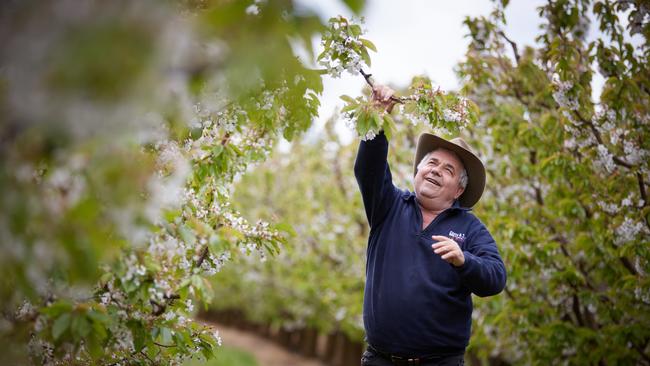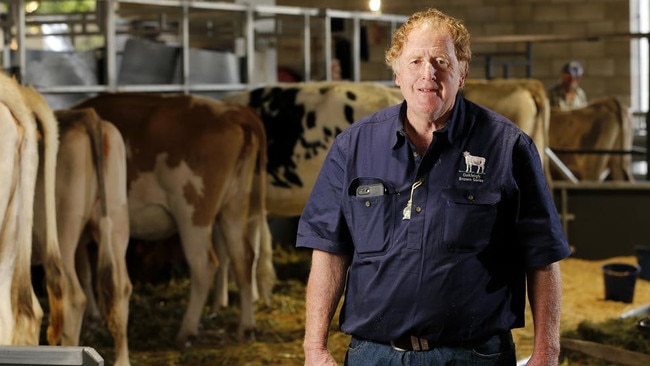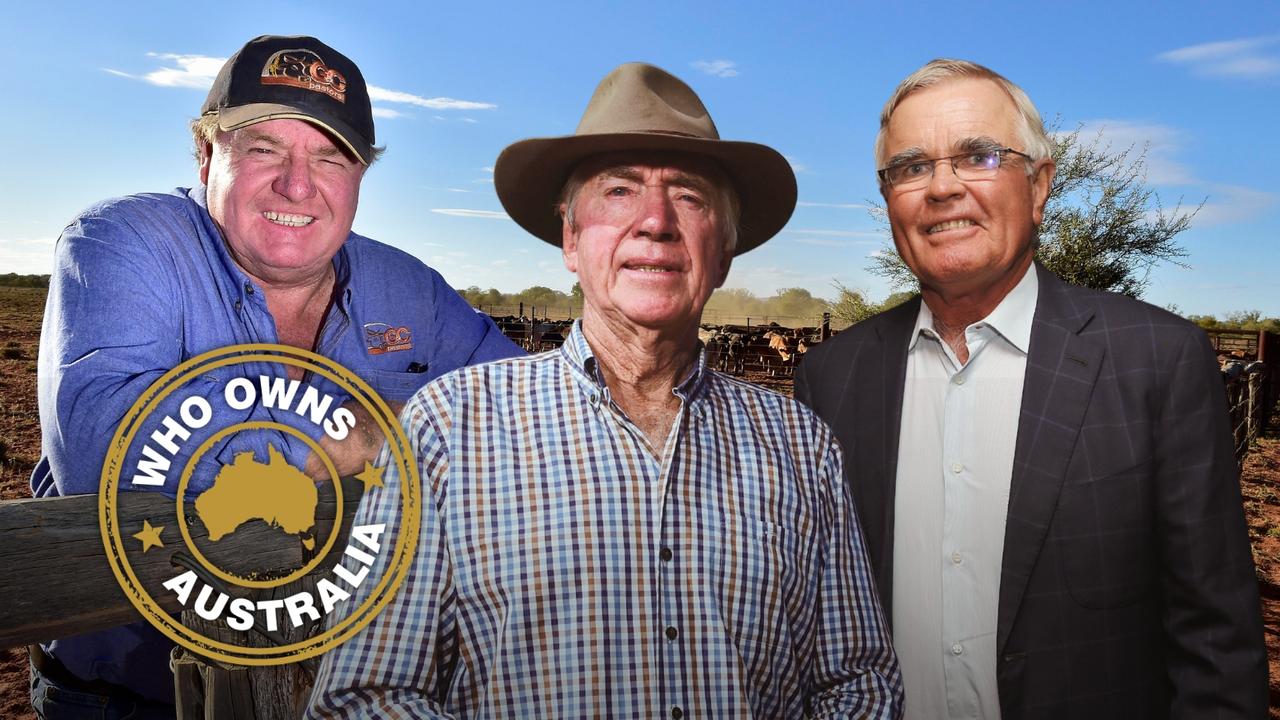Farmers ‘pushed to the very limit’ in dealings with supermarkets
Farmers have warned against the power imbalance between themselves and supermarkets for years, and now there is a renewed vigour to examine the grocery retailers.
Orchardist Guy Gaeta knows his produce. After almost 40 years as an apple and cherry grower based at Orange in NSW, he’s seen just about everything working in agriculture can aim your way.
But arguably one of the biggest challenges a producer can face at present comes in the form of their biggest customer: the major supermarkets.
“They reject fruit for no reason at all,” Gaeta says.
“People don’t understand how ruthless the supermarkets are. Just to sell a zucchini it has to be perfectly straight – pretty soon they will expect bananas to be straight, believe me.
“They reject cauliflowers for being too big — and lot of customers would be fine with a large cauliflower.”
Gaeta – who no longer supplies Woolworths or Coles – made the comments at a recent Senate inquiry hearing into supermarket pricing, which has uncovered all manner of stories of supermarkets behaving badly: undercutting farmers on price and pocketing the profits; deliberately over-ordering to create oversupply to drive down prices; producers unwilling to speak out for fear of being “cut out” of the supply chain.

The revelations are not necessarily new; farmers have warned against the power imbalance created by the duopoly for years. But, with Woolworths and Coles each posting profits in excess of $1 billion in the midst of a cost-of-living crisis, there is a renewed vigour to examine – or perhaps make an example of – the grocery retailers.
No fewer than six investigations into the supermarket supply chain and competition policy have got underway in as many months, including the aforementioned Senate inquiry, an ACCC deep dive into supermarket pricing and the federal government’s review into the Food and Grocery Code of Conduct.
“I think it’s an issue whose time has come,” says Jolyon Burnett, chair of the National Farmers’ Federation’s horticulture council, when asked if the current attention on the supermarkets would amount to real change.
“Growers have been complaining about this behaviour for a number of years … but I think the public is sick of being ripped off and outright deceptive behaviour. Growers have been pushed to the very limit, a recent AUSVEG survey showed 37 per cent of growers were thinking of leaving the industry. All of these things have come to a head.”

Early indications are some changes will stick. Head of the government’s Food and Grocery Code of Conduct review, former Labor MP Craig Emerson, last month handed down his interim report, with the government already agreeing in principle with eight of its “firm” recommendations.
These include making the code mandatory for supermarkets with an annual minimum turnover of $5 billion, a change that would capture the big four: Woolworths, Coles, Metcash and Aldi.
Dairy farmers – an industry that has been operating under a mandatory code of conduct for processors and suppliers since 2020 – were among the many agricultural lobby groups applauding the move.
“We’ve seen positive benefits (from the dairy code) – I have absolutely no doubt when this code is adopted it will have a big effect, not only for farmers but also consumers,” eastAUSmilk chair Joe Bradley says.
“It gave the farmers more confidence, knowing the processors can’t just change the price midway through the season and knowing that pricing upfront … it’s made things a lot more open and that’s made a huge difference.”

The flip side of having a locked in minimum milk price, processors argue, is that the price may stay high even as overseas markets decline. Cheaper dairy imports have surged 16 per cent in the past year while at least a dozen dairy processors have gone under; meanwhile, dairy farmers are still leaving the industry. Dairy Food Safety Victoria figures show the number of bovine dairy licenses in what is the nation’s dairy powerhouse dropped by 200 between 2022 and 2023.
Burnett says the adage “careful what you wish for” certainly rings true.
“Supermarkets are essential, no one wants to see them go out of business – they sell 65 per cent of fresh produce,” he says.
“This is not a campaign against them but we do need to strike a better balance between the trading relationship between these incredible cashed-up operations and mum-and-day businesses.”
While Woolworths and Coles have responded with expected caution to the Emerson report, other organisations have been blunter in their assessments.
The Australian Chamber of Commerce warned against “heavy-handed regulation”, fearing it could have wider and unintended consequences, setting a precedent for other industries.
Still, for those arguably at the core of this supply chain – the farmers – there is a unity not often seen in agriculture, in support of a mandatory code. All producers, from the fruit and veg growers to dairy to beef, seem hopeful the odds are about to shift – if not completely in their favour, then at least to something akin to balance.
“There’s numerous examples by all farming sectors of just how unfairly supermarkets treat different aspects of supply chain and I think that evidence is now there,” Bradley says.
“The code won’t change everything but it’s a start, it’s an absolute start.”




